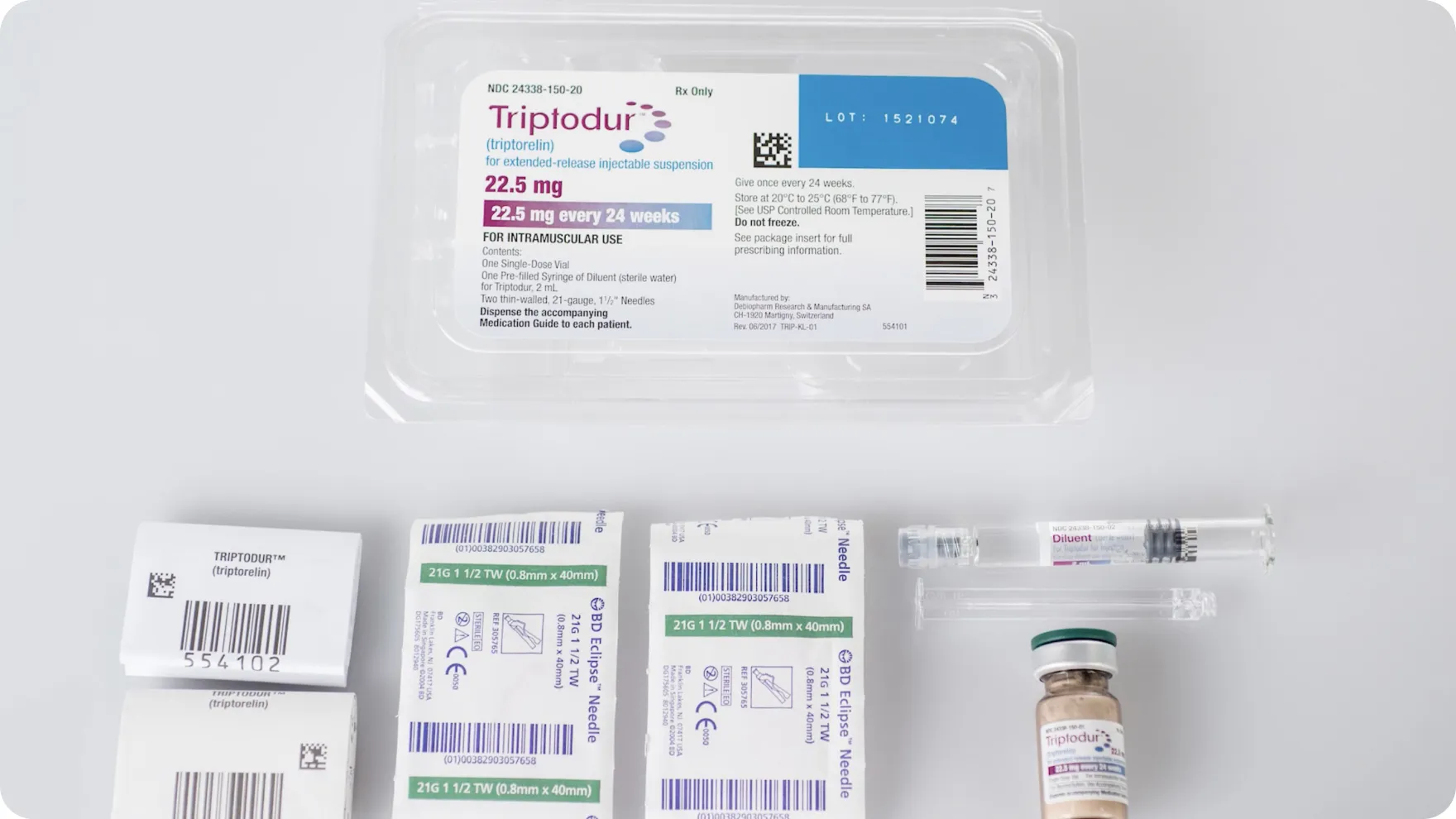INDICATION
TRIPTODUR is indicated for the treatment of pediatric patients 2 years of age and older with central precocious puberty (CPP).
IMPORTANT SAFETY INFORMATION
Contraindications
TRIPTODUR is contraindicated in:
- Individuals with a known hypersensitivity to triptorelin or any other component of the product, or other GnRH agonists or GnRH.
- Women who are or may become pregnant. Expected hormonal changes that occur with TRIPTODUR treatment increase the risk for pregnancy loss and fetal harm when administered to a pregnant woman. If this drug is used during pregnancy, or if the patient becomes pregnant while taking this drug, the patient should be advised of the potential risk to the fetus.
Warnings and Precautions
Initial Rise of Gonadotropins and Sex Steroid Levels – During the early phase of therapy, gonadotropins and sex steroids rise above baseline because of the initial stimulatory effect of the drug. Therefore, a transient increase in clinical signs and symptoms of puberty, including vaginal bleeding, may be observed during the first weeks of therapy or after subsequent doses.
Psychiatric Events – Psychiatric events have been reported in patients taking GnRH agonists. Postmarketing reports with this class of drugs include symptoms of emotional lability, such as crying, irritability, impatience, anger, and aggression. Monitor for development or worsening of psychiatric symptoms during treatment with TRIPTODUR.
Convulsions – Postmarketing reports of convulsions have been observed in patients receiving GnRH agonists, including triptorelin. These included patients with a history of seizures, epilepsy, cerebrovascular disorders, central nervous system anomalies or tumors, and patients on concomitant medications that have been associated with convulsions such as bupropion and SSRIs. Convulsions have also been reported in patients in the absence of any of the conditions mentioned above.
Pseudotumor Cerebri (idiopathic intracranial hypertension) – has been reported in pediatric patients receiving GnRH agonists, including triptorelin. Monitor patients for signs and symptoms of pseudotumor cerebri, including headache, papilledema, blurred vision, diplopia, loss of vision, pain behind the eye or pain with eye movement, tinnitus, dizziness, and nausea.
Adverse Reactions
In clinical trials for TRIPTODUR, the most common adverse reactions (≥4.5%) are injection site reactions, menstrual (vaginal) bleeding, hot flush, headache, cough, and infections (bronchitis, gastroenteritis, influenza, nasopharyngitis, otitis externa, pharyngitis, sinusitis, and upper respiratory tract infection).
To report SUSPECTED ADVERSE REACTIONS, contact Azurity Pharmaceuticals, Inc. at 1-800-461-7449, or FDA at 1-800-FDA-1088 or www.fda.gov/medwatch.
The Important Safety Information does not include all the information needed to use TRIPTODUR safely and effectively. For additional safety information, please consult the full Prescribing Information for TRIPTODUR.












